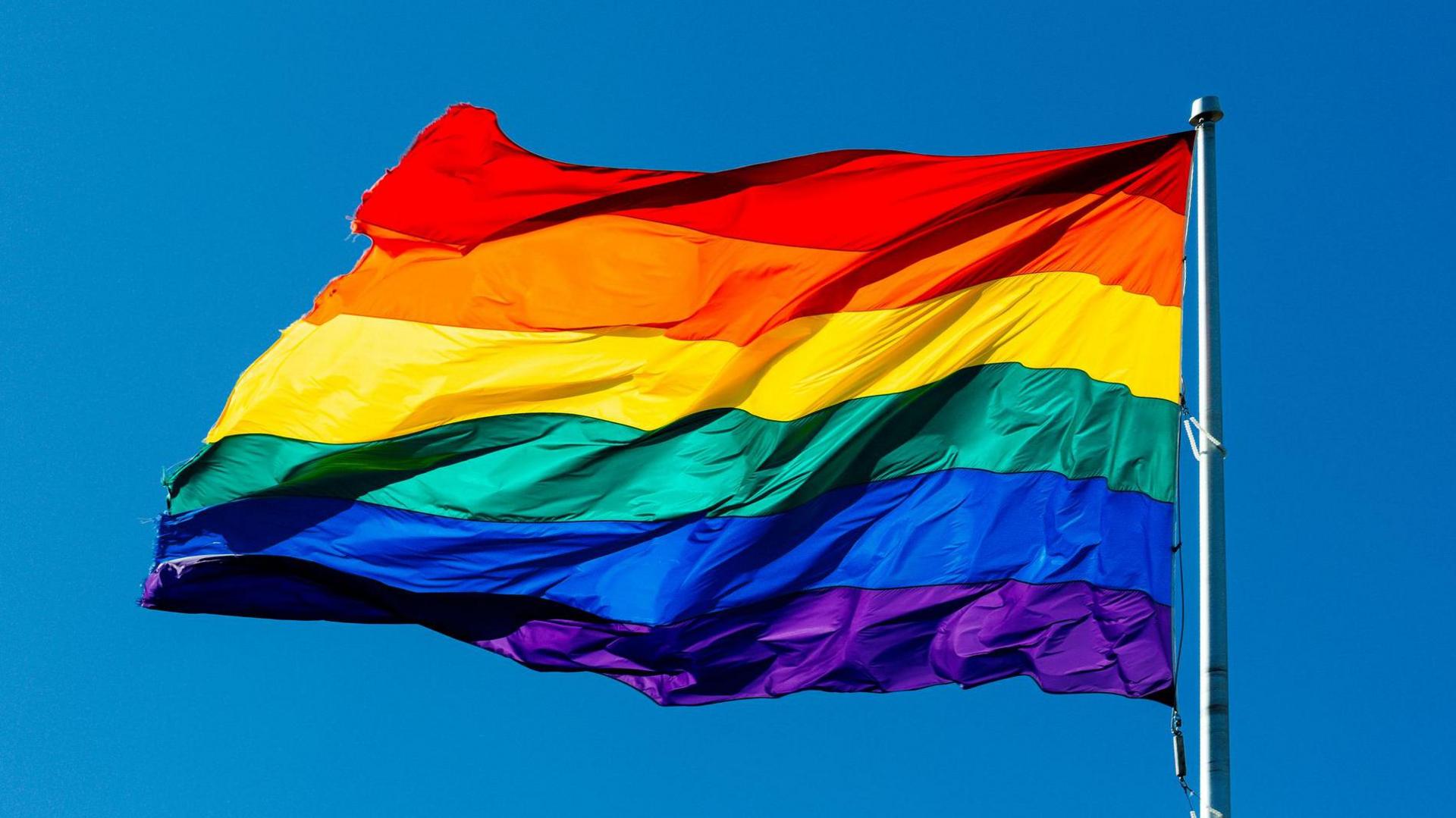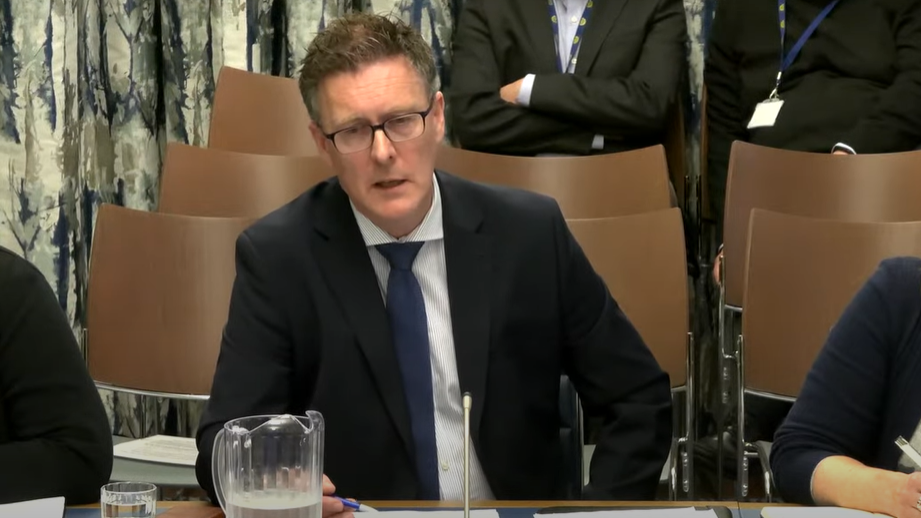Church claims pupils called 'bullies' over homosexuality views

- Published
Some sixth-form pupils were called bullies for expressing a view that homosexuality was wrong, it has been claimed.
A representative from the Presbyterian Church in Ireland (PCI) made the claim to MLAs on Stormont's Education Committee.
The main Protestant denominations are represented in education by a body called the Transferor Representatives' Council (TRC).
The TRC monitors education policy and oversees the appointment of governors to controlled schools.
'Critical thinking'

Dr Andrew Brown tells the committee that people can be "scared to voice their own opinions"
Representatives from the TRC gave evidence about Relationships and Sexuality Education (RSE) to MLAs.
Dr Andrew Brown, who sits on the TRC representing the Presbyterian Church, said that while RSE was "vital" they shared "concern over the content mandated by the former secretary of state for Northern Ireland".
It is set to be compulsory for all post-primary schools in Northern Ireland to teach pupils about access to abortion and prevention of early pregnancy.
That is a result of former Northern Ireland Secretary Chris Heaton-Harris laying regulations on RSE in Parliament in 2023.
Scared to be 'politically incorrect'
Dr Brown said it was important to teach "critical thinking" as RSE was "more than facts, it's more than biology, it's more than the law".
"It is about world views and examining those world views," he said.
"One of the things that people are slightly scared of in today's society is that they're potentially only allowed to say what is current.
"They're scared to be able to voice their own opinions in case they're perhaps politically incorrect.
"In considering how to help students and indeed teachers to be critical thinkers then they have to look at the different stances and viewpoints around this.
"You can't take a neutral stance on RSE, nor can you take a neutral stance in anything in education."
'Different views' on sexuality

Dr Brown says "no aspect of RSE can be taught in a morally neutral environment" - stock image
Later, in response to a question from the Sinn Féin MLA, Pat Sheehan, Dr Brown said he had been contacted about a workshop run by an outside organisation in a school during anti-bullying week, which takes place every November.
"They had a group of sixth formers together," he said.
"The pupils were all asked to raise their hands if they thought that homosexuality was wrong, and some of the pupils raised their hands.
"The person who was leading that workshop turned to them in front of everybody else and said: 'You're bullies'."
"Those children, those young people, had their own world views - I don't know whether it came from a faith position or not - but they had their own world views about what their view on homosexuality was."
He said they were "told quite categorically by a visiting group, who would also be involved in the delivery of RSE, that believing something made them wrong or made them bullies".
"Everyone within our school communities, everyone, will have a different view on issues to do with sexuality," he added.
"Our concern is you have to take the facts with the moral compass and understand that these issues are so sensitive that you can't just get into biology, legality, right, wrong."
Trained not to allow 'homophobic remarks'
Dr Brown did not identify the school or the outside organisation involved.
Dr Anita Gracie from the Methodist Church said that teachers were trained not to allow "homophobic remarks".
"The ethos of the school is care for the pupil and for them to be at the heart of everything we do," she said.
"If the ethos of the school says that homosexuality is wrong, it's sinful and it's an abomination how does that make a young gay person in a school feel?" Mr Sheehan responded.
"Our schools have a non-denominational Christian ethos," Dr Gracie replied.
"So that teaching that you're outlining there, that homosexuality is wrong - an abomination - is not the teaching of all of our churches completely, every single Christian church," she added.
"Controlled schools as well are open to those of all faiths and none," Dr Brown said.
"I would know of no school which would have an ethos that would espouse what you are suggesting," he said.
No 'morally neutral environment'
Dr Brown had earlier told MLAs that RSE should be taught in "a sensitive, inclusive manner".
But he said that "no aspect of RSE can be taught in a morally neutral environment".
"We'd like to stress that RSE should not only provide biological and legal information but also allow students to explore moral and ethical considerations such as those related to abortion and early pregnancy prevention," he said.
"We argue that RSE is inherently shaped by worldviews that involve moral and ethical judgements about relationships and sexuality," he said.